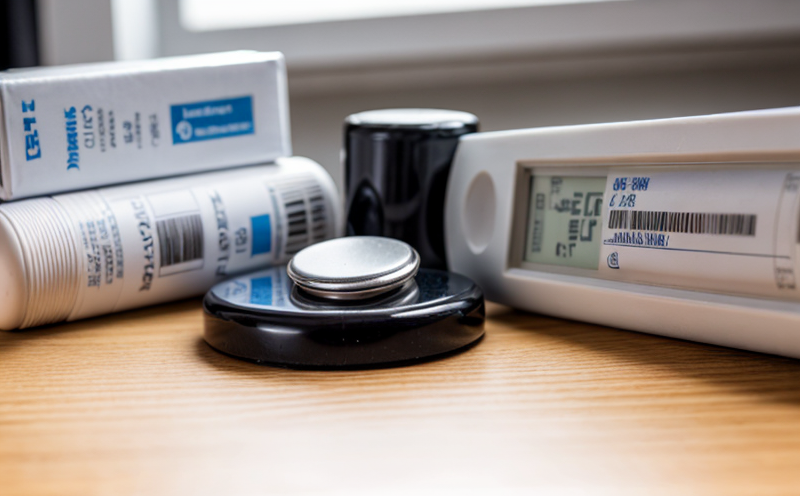Pharmaceutical Vendor Compliance: Ensuring Quality and Adherence to Regulations
The pharmaceutical industry is one of the most heavily regulated sectors in the world, with a complex web of laws and regulations that govern everything from manufacturing processes to marketing practices. As a result, pharmaceutical companies must ensure that their vendors are compliant with these regulations to avoid potential fines, penalties, and reputational damage.
Pharmaceutical vendor compliance refers to the process of ensuring that third-party suppliers meet the necessary standards for quality, safety, and regulatory requirements. This includes auditing vendors facilities, equipment, and procedures to verify their ability to provide high-quality products and services.
To ensure pharmaceutical vendor compliance, companies must first identify potential risks associated with each vendor. This may involve conducting thorough risk assessments, reviewing vendor contracts, and evaluating their track record of compliance.
Key Considerations for Pharmaceutical Vendor Compliance
Regulatory Requirements: Familiarize yourself with relevant regulations, such as the FDAs Good Manufacturing Practice (GMP) guidelines, EU GMP guidelines, and ICH Q7 guidelines. Ensure that vendors are aware of these requirements and understand their obligations.
Vendor Qualification: Verify vendor qualifications through audits, inspections, or other means to ensure they meet industry standards for quality and safety.
Audit Trails: Establish audit trails to track changes made to products, processes, or procedures. This ensures that all modifications can be easily tracked and documented.
Vendor Evaluation and Selection Process
When selecting vendors, its essential to evaluate their capabilities and qualifications thoroughly. Here are some key factors to consider:
Quality Management System (QMS): Review vendor QMS documentation to ensure they meet industry standards for quality management.
Facility Inspections: Conduct regular facility inspections to verify compliance with regulatory requirements.
Equipment Validation: Verify that equipment is validated and calibrated according to standard operating procedures (SOPs).
Training and Documentation: Ensure vendors provide adequate training and documentation to support compliance.
Continuous Monitoring and Improvement
Compliance is not a one-time event, but rather an ongoing process. To ensure pharmaceutical vendor compliance, companies must continuously monitor vendors performance and implement improvements as needed.
Regular Audits: Conduct regular audits of vendor facilities, equipment, and procedures to identify areas for improvement.
Corrective Actions: Implement corrective actions to address any issues identified during audits or inspections.
Training Programs: Develop training programs to educate vendors on regulatory requirements and best practices.
QA Section
What is the primary goal of pharmaceutical vendor compliance?
The primary goal of pharmaceutical vendor compliance is to ensure that third-party suppliers meet industry standards for quality, safety, and regulatory requirements. This includes auditing vendors facilities, equipment, and procedures to verify their ability to provide high-quality products and services.
How do I identify potential risks associated with each vendor?
To identify potential risks associated with each vendor, conduct thorough risk assessments, review vendor contracts, and evaluate their track record of compliance.
What are some common regulatory requirements for pharmaceutical vendors?
Common regulatory requirements for pharmaceutical vendors include GMP guidelines, EU GMP guidelines, and ICH Q7 guidelines. Familiarize yourself with these regulations to ensure vendors are aware of their obligations.
How often should I conduct vendor audits?
Conduct regular vendor audits (e.g., annually or bi-annually) to verify compliance with regulatory requirements and identify areas for improvement.
What is the role of an auditor in pharmaceutical vendor compliance?
An auditors role in pharmaceutical vendor compliance includes conducting facility inspections, evaluating equipment validation, and verifying documentation. They also identify areas for improvement and recommend corrective actions.
Can I outsource my auditing process to a third-party auditor?
Yes, companies can outsource their auditing process to a third-party auditor. However, ensure that the auditor is qualified and experienced in pharmaceutical industry audits.
How do I develop effective training programs for vendors?
Develop training programs that educate vendors on regulatory requirements and best practices. Ensure training materials are comprehensive, engaging, and relevant to vendor operations.
What are some benefits of implementing continuous monitoring and improvement processes?
Benefits include improved compliance rates, enhanced customer satisfaction, and increased confidence in vendor quality and safety.
How do I determine whether a vendor meets industry standards for quality management?
Review vendor QMS documentation and verify that it meets industry standards. Conduct regular audits to ensure ongoing compliance.
Can I use digital tools to streamline the auditing process?
Yes, companies can use digital tools (e.g., auditing software) to streamline the auditing process, reduce paperwork, and enhance data analysis.
What are some common mistakes to avoid when selecting vendors?
Common mistakes include inadequate vendor evaluation, failure to conduct regular audits, and neglecting to address issues promptly.

































